Finding SA a seat at the AFL Commission table
SA football hasn’t had a voice on the AFL Commission since the late Bob Hammond stepped down in 2011. A decade on, who could replace him at the league’s top table? Michelangelo Rucci considers some possible candidates.
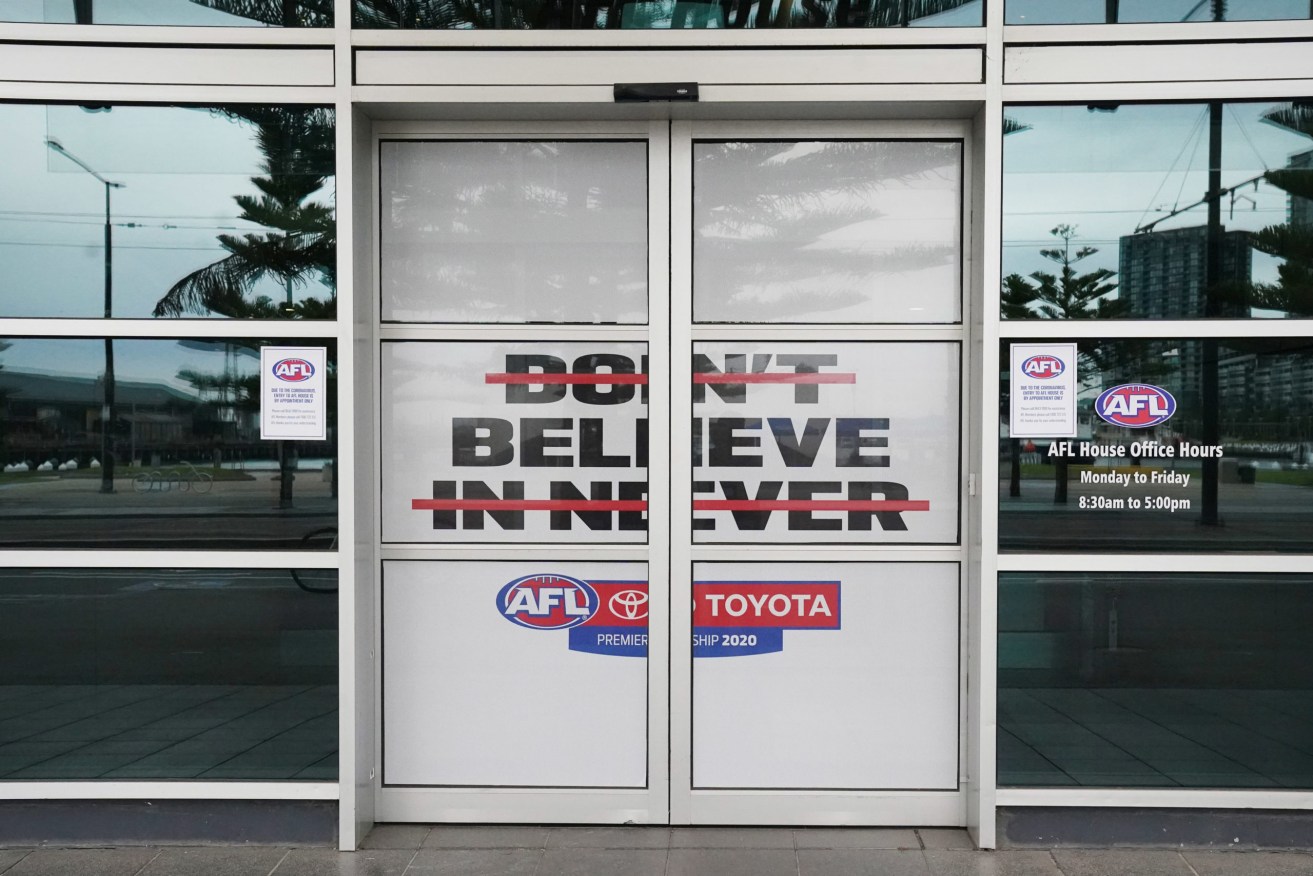
AFL House in Melbourne. Photo: AAP/Michael Dodge
South Australia is without a major player in Australian football’s halls of power.
This irks club leaders such as Crows chairman John Olsen. It creates the fear of being ignored or overlooked in a supposedly Victorian-centric AFL.
SA football doesn’t lack for quality potential candidates to be elected to the game’s most-important forum, the AFL Commission.
But it’s been two years since any South Australian football administrator commanded a perch on the AFL’s highly regarded top-50 list of powerbrokers, as settled by either by a poll of the game’s key observers or just by senior writer Ashley Browne at AFL House.
The roll call of “movers and shapers” is well noted within the game as a road map through the maze of powerbrokers who shape Australia’s biggest professional sporting league.
And there is no South Australian at any critical intersection.
Port Adelaide’s Sydney-based president David Koch has completely fallen off the top-50 list after being at No. 27 in 2018 (after previously holding the 26th berth in 2016 and 30th in 2017). That’s despite his significant television platform and the stronger results on and off the field from his football club, and its groundbreaking move to China before the COVID pandemic put a brake on AFL games in Shanghai.
No-one from the Adelaide Football Club’s front office or boardroom has made the top-50 list since now-departed chief executive Andrew Fagan ranked at No. 35 in 2019 (rising from No. 40 the year before and No. 45 in 2017).
Not even Brownlow Medallist and Crows director Mark Ricciuto, a “kingmaker” in South Australia with his power at the Adelaide Football Club and strong profile in the media, is seen outside Adelaide as among the top-50 influencers in Australian football.
Long gone are the days when anyone from the SANFL could influence AFL executives in the way Max Basheer did during his record-breaking, 25-year tenure as the South Australian league’s president from 1978 to 2003.
And despite AFL chief executive Gillon McLachlan having a South Australian heritage – and repeatedly a top-five ranking in the “movers and shapers” list – he is rarely seen as a man carrying South Australia’s torch. And he has no long history of serving either the SANFL or an SANFL or AFL club in Adelaide.
The 2021 list had just two South Australian-based personalities – multi-media Port Adelaide premiership midfielder Kane Cornes at No. 48 and Crows AFLW premiership captain Erin Phillips at No. 39.
Power in the national game is associated with star players, major player agents, league managers, media personalities and executives and club leaders. The top 10 this year even includes politicians who took on greater influence with the complications created by the COVID pandemic last year.
The 10 most-influential people in Australian football in the past year were listed on the AFL’s official platform as – 1, AFL chief executive Gillon McLachlan; 2, AFL players’ union boss Paul Marsh; 3, AFL senior executive Travis Auld; 4, AFL Commission chairman Richard Goyder; 5, Brownlow Medallist and Richmond premiership hero Dustin Martin; 6, AFL football boss Steve Hocking; 7, AFL legal counsel Andrew Dillon; 8, Channel Seven boss James Warburton; 9, Victorian politician Martin Pakula; 10, former Collingwood president Eddie McGuire.
None is based in South Australia. Marsh does have some experience in South Australian football having worked at Port Adelaide as a sales and marketing manager from 1997-2001.
True power rests with the AFL Commission.
Since 1985, the most powerful room in Australian football has been filled by the independent VFL-AFL Commission, which replaced the club-driven board of directors with a delegate from each VFL club.
South Australia has not had a “voice” on the AFL Commission since the late Bob Hammond – a former SANFL player and coach, former Sydney coach and the inaugural chairman of the Adelaide Football Club – left in 2011.
But former SANFL chief executive Leigh Whicker dismisses the idea that an AFL commissioner represents a state by his residential status.
“Bob always was fiercely loyal to the AFL Commission,” Whicker said of the South Australian renowned for his integrity.
“I would not say Bob was there to do any favours for South Australia – and nor should he have done so. The commission should be an independent board, not a house of State representatives. Bob certainly lived up to the theme of independent thinking.”
Basheer would prefer an AFL Commission that replicates the Senate in federal politics, with representatives from all States and territories.
New Adelaide Football Club chairman John Olsen just wants a South Australian to counter what he describes as a Victorian-centric agenda and bias at AFL House.
Former AFL chief executive Wayne Jackson, the other South Australian to sit on the AFL Commission before he took the chief executive chair in 1996, says: “If you want a South Australian on the AFL Commission, find one and work assiduously to have them elected.”
This opportunity might exist today.
Sydney and West Coast premiership ruckman Jason Ball – the only former AFL player on the commission – and former Foxtel and News Corp chief executive Kim Williams called an end to their long tenure on the commission in March.
The search for new commissioners falls to a nominations committee that includes Koch – and other club leaders Dale Alcock (Fremantle), Mark LoGuidice (Carlton), South Australian-born Andrew Pridham (Sydney) and Andrew Wellington (Brisbane) – along with current commissioners Simone Wilkie and chairman Richard Goyder.
All 18 AFL club presidents vote for new commissioners. The lead candidate today is former Western Bulldogs president Peter Gordon with a strong lobby group that is said to include former Collingwood president Eddie McGuire.
McGuire would avoid this forum himself, particularly when commissioners are expected to stay silent leaving all public comment to the chairman and AFL chief executive.
So who from South Australia would suit for the 10-person AFL Commission today?
KEITH THOMAS
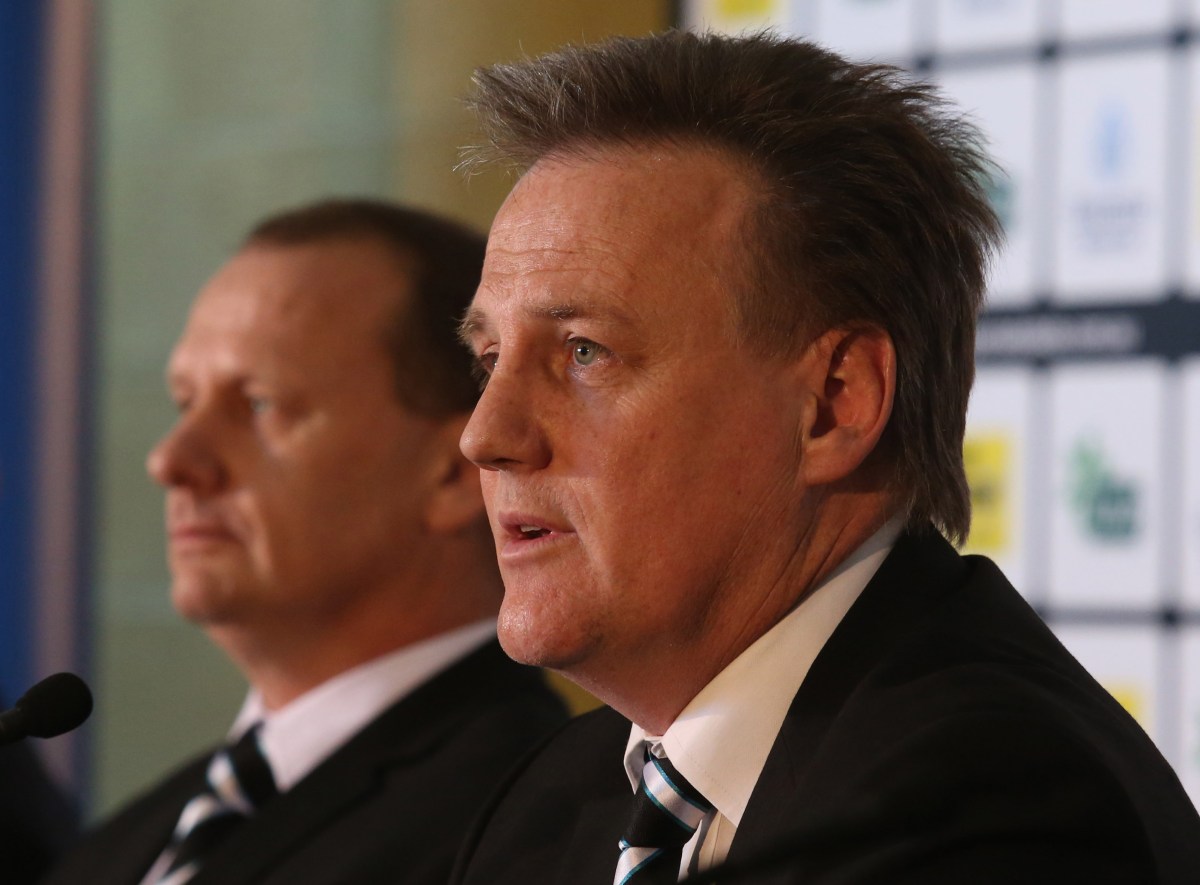
Former Port Adelaide CEO Keith Thomas.
Adelaide 36ers owner Grant Kelly is destined to take Thomas out of the frame for the AFL Commission by hiring the Norwood (SANFL) premiership hero as chief executive of his national basketball team.
The well-paying job with the Sixers will have more appeal than a volunteer role at the AFL, even as a commissioner.
Thomas, 59, has the ideal resume to be the third South Australian appointed to the AFL Commission with a perfect blend of football and business experience. He played in both the SANFL (304 matches with Norwood) and the VFL-AFL (28 games with Fitzroy in 1987-1988). He has worked off-field in both leagues serving Norwood’s board of directors and as chief executive at Port Adelaide from 2011 (during the club’s darkest hours) until his retirement at the end of last season. He has business acumen from managing radio networks and in the start up of the new Adelaide Oval before joining Port Adelaide.
Thomas’s experiences in taking Port Adelaide along the demanding road to China also make him ideal for a commission that recently has appeared to load up its table with “special agendas” – such as social causes – and might need to return a stronger focus to football issues.
Kelly will certainly deny South Australian football the perfect new voice needed at the AFL Commission – and not just for South Australian interests.
BRIAN CUNNINGHAM
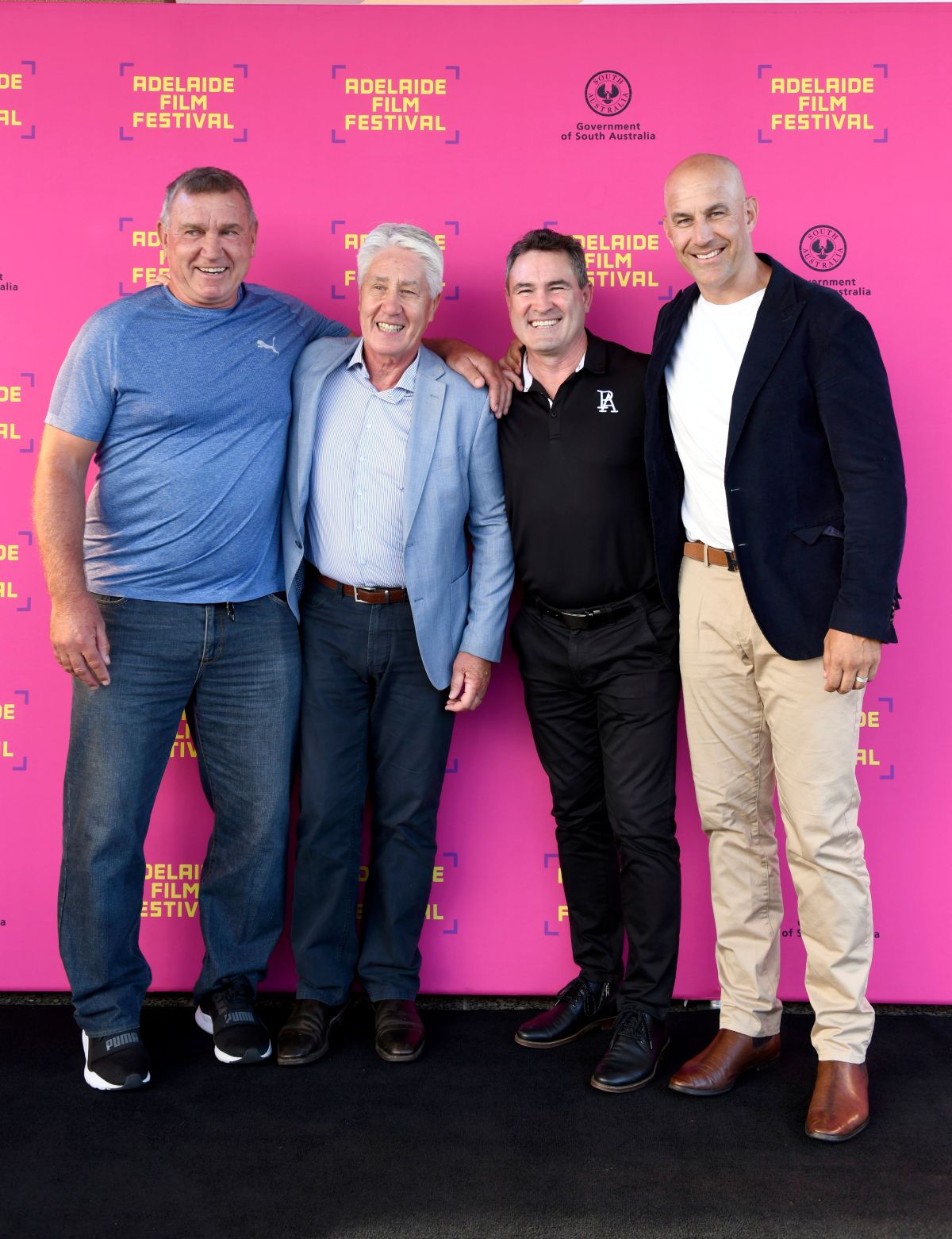
Brian Cunningham (second from left) with Greg Phillips, Tim Ginever and Warren Tredrea.
He has been here before, in the early 2000s when the AFL was seeking a new football chief to replace Andrew Demetriou while he stepped up to the role of AFL chief executive. The AFL did err – by its political games designed to lessen South Australian input at headquarters – in not taking Cunningham away from Port Adelaide where he had been chief executive from its SANFL desk in 1992 and was a key player in its successful push for an AFL licence.
Cunningham, like Thomas, has the perfect resume with a long record in football and a strong reputation in business since leaving Port Adelaide after its 2004 AFL premiership triumph to set up a successful consultancy agency.
Cunningham, 68, played 256 SANFL league matches with Port Adelaide from 1971-1983; and he served on the SA Football Commission from 2006 until tiring of the petty politics in SA football five years later.
Cunningham’s calm and sage approach and strong understanding of core football issues would ideally suit an AFL Commission needing a stronger focus on the need of the AFL clubs and the grassroots during the rebuild through the COVID pandemic.
MARK RICCIUTO
More than a decade ago, the 2003 Brownlow Medallist became concerned with the AFL Commission lacking the voices of former AFL players. At that stage there was just one voice from this critical fraternity – Sydney and West Coast premiership ruckman Jason Ball who is calling time on his tenure with the commission.
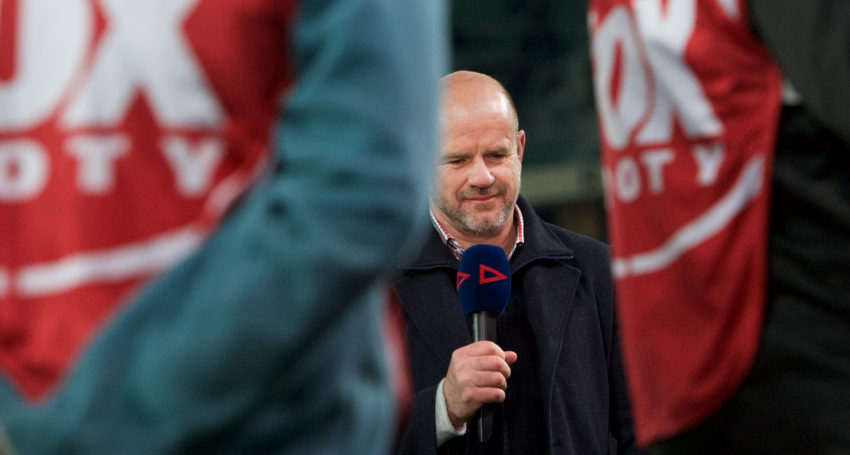
While 45-year-old Ricciuto says he is not ready to walk away from a “job half done” in the Adelaide Football Club’s on-field rebuild, there would be a win-win equation in nominating the 312-game Crows legend to the AFL Commission. The Crows would get a new set of eyes on its football department – most likely premiership captain Mark Bickley, who has vowed to avoid the conflict-of-interest debate by quitting his media roles should he take up an official position at an AFL club.
The AFL Commission would avoid appearing devoid of the players’ knowledge on the game’s needs. And Olsen gets a South Australian – one he knows well – at headquarters.
DAVID PITTMAN
At some stage the Crows premiership ruckman will answer the call of the game that has lined him up as a contender for the Adelaide Football Club board and even the chairmanship.
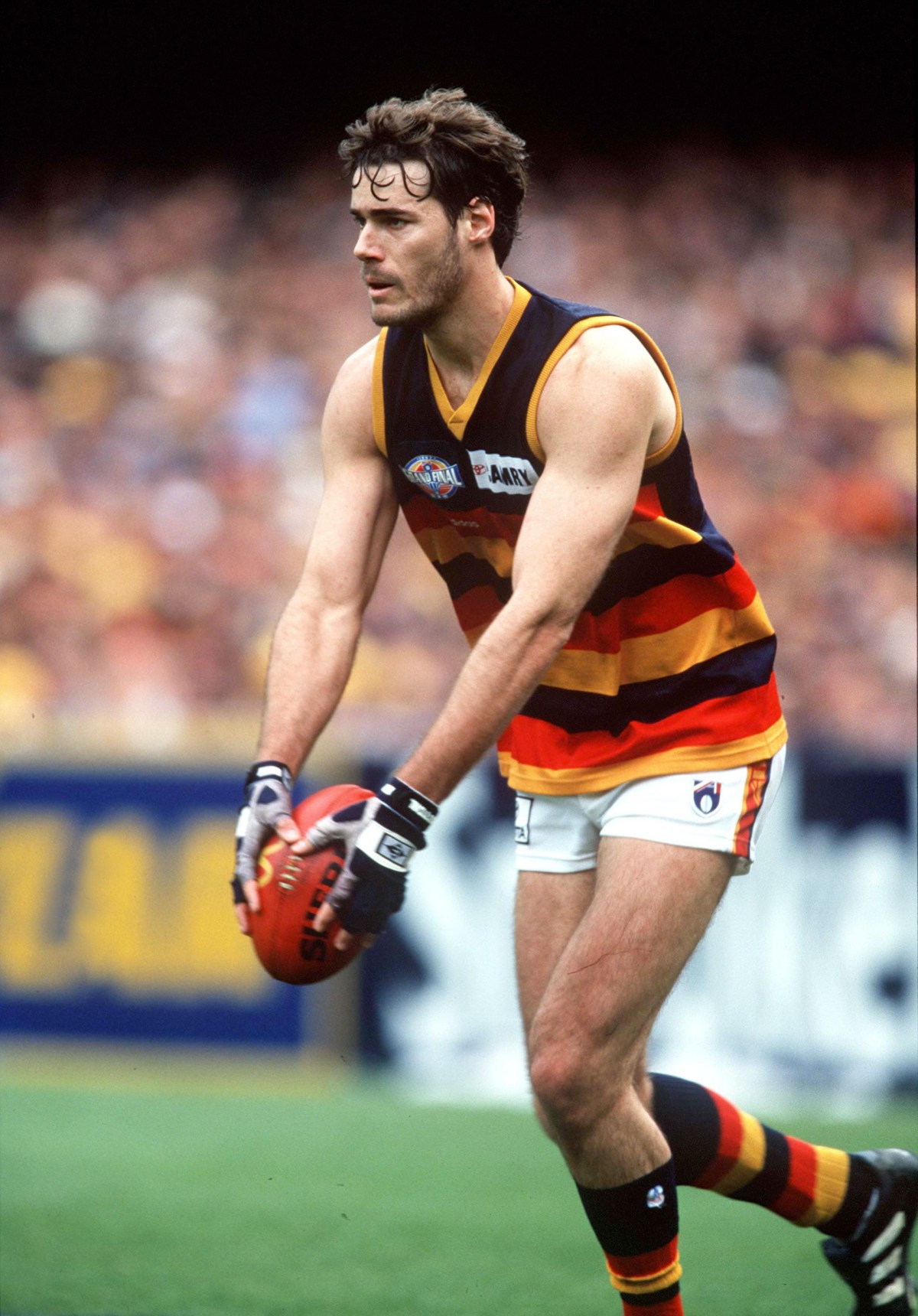
David Pittman during the Crows’ 1997 AFL Grand Final win over St Kilda . Photo supplied
The 52-year-old investment analyst has the business acumen and football background – both in the AFL and SANFL at Adelaide and Norwood as a player and at Port Adelaide as an assistant coach – to repeatedly be seen as the answer to many football vacancies. But he continually resists, often arguing he does not have the time to commit to consuming roles in football administration.
Pittman has built up invaluable experiences as an administrator in local athletics and in grassroots football at Glenunga to bring “real world” thinking to the commission.
ANDREW McLEOD
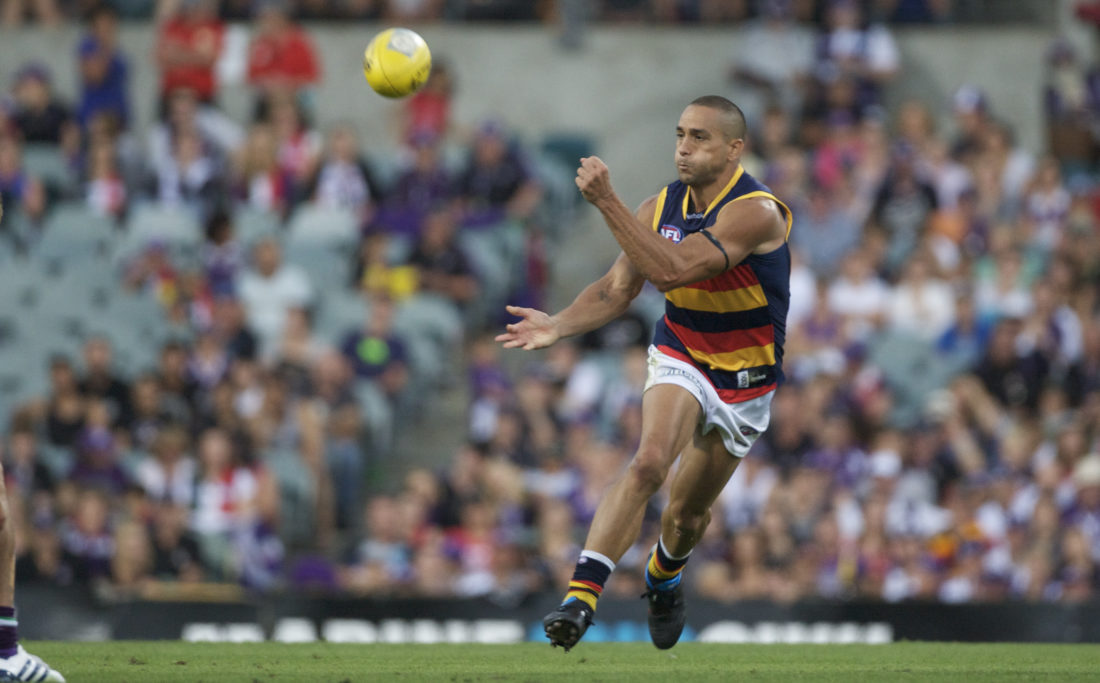
Photo: AAP/Tony McDonough
Adam Goodes is always mentioned as the leading candidate to deliver the first indigenous voice to the AFL Commission. But the Brownlow Medallist and Sydney premiership hero keeps the AFL on hold.
Among leading South Australian football figures, there is a strong call for the opportunity set aside for Goodes to be handed to dual Norm Smith Medallist and Crows champion Andrew McLeod.
The 44-year-old premiership hero has appeal for the South Australian agenda – and that of the Northern Territory where he began his football story converting from rugby to Australian football while growing up in Darwin.
McLeod’s public wounds with the Adelaide Football Club appear to be healing considering his appearance, with his wife Rachel, as a club guest through former chief executive and chairman Bill Sanders’ diplomacy at Saturday’s home match against Melbourne at Adelaide Oval.
ROB CHAPMAN
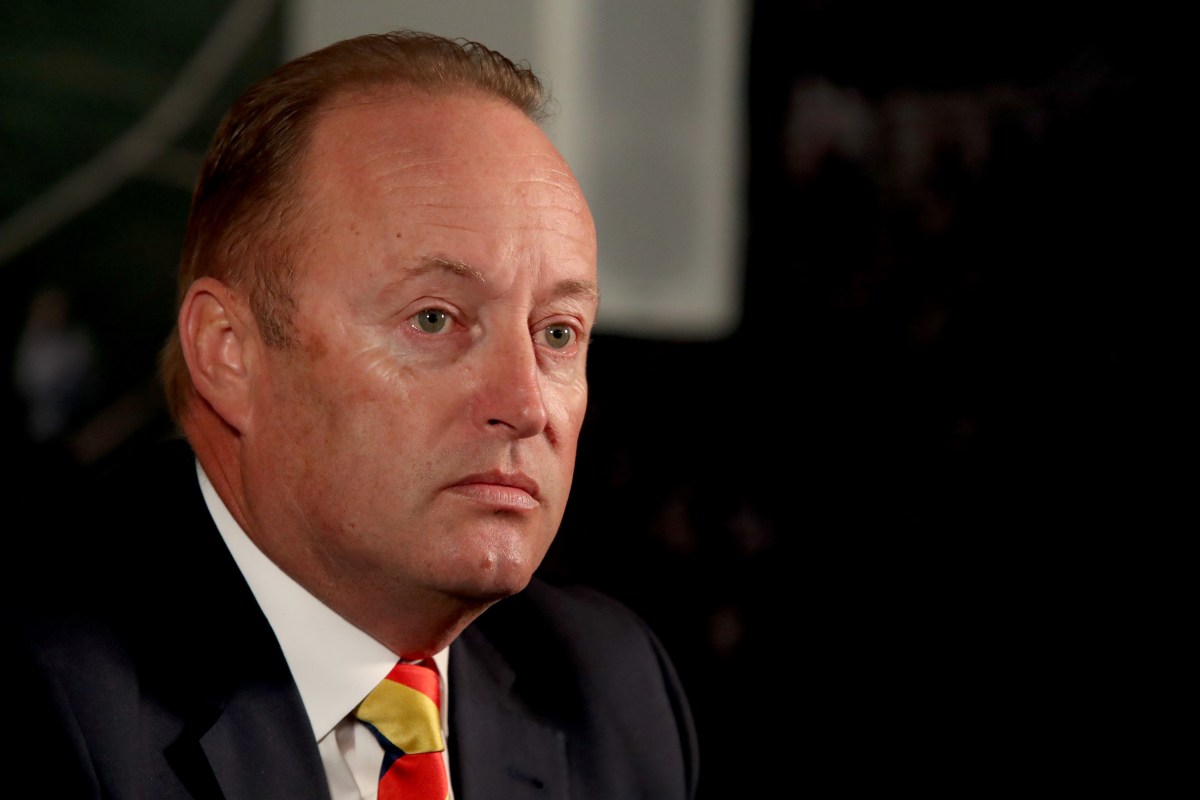
Former Crows Chairman Rob Chapman. Photo: Kelly Barnes / AAP
Recently retired as chairman of the Adelaide Football Club (after a decade-long stint), Chapman could mix the demands of the commission with his preference to spend more time with family and friends.
Chapman, 56, carries a long resume in banking and business.
Many had expected Chapman to be called to the AFL “crisis cabinet” last year when the league gathered a small group of club presidents to manage pressing issues posed by the COVID lockdown. But the league preferred Sydney chairman and noted financial expert Andrew Pridham – another pointer to how South Australia has lost its power to influence key decisions and appointments at AFL House.
In question is how the AFL Commission – in particular chairman Richard Goyder who is a stickler on governance issues – would view Chapman in light of the Kurt Tippett salary cap saga that unfolded under his watch at Adelaide in 2012. As former Crows and Carlton chief executive Steven Trigg knows too well, the Melbourne-based AFL media does not let go of old controversies, and Goyder prefers to avoid them.
The moment appears to have moved past inaugural Adelaide coach Graham Cornes, who this year was called by the AFL to serve as a selector to the Australian Football Hall of Fame.
Notable from this list of potential candidates is the lack of a woman at a time of significant achievements with national success in women’s football in Adelaide.
The battle to fill vacant seats at the AFL Commission will be revealing of the political agendas and power bases in Australian football. It could further highlight why South Australia has no off-field powerbroker in the annual top-50 list of the game’s “movers and shapers”.




